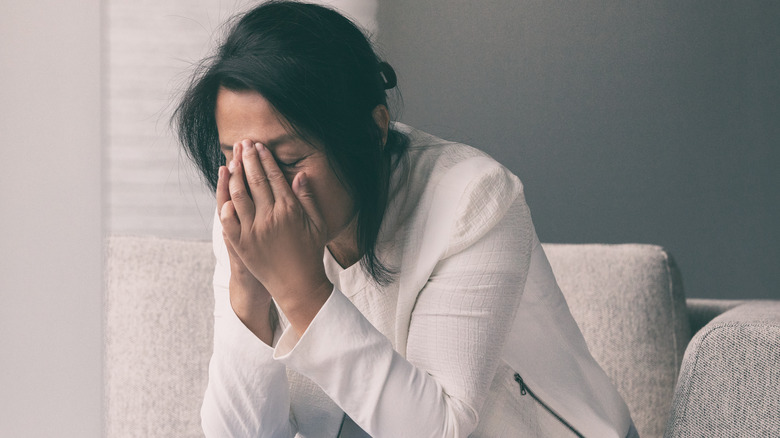Why Practicing Mental Health Hygiene Should Be A Part Of Your Daily Routine
Physical hygiene is something most of us are all too familiar with. But what about mental hygiene? Just like there are ways to keep our physical health in tip-top shape, there are ways to keep our mental health functioning properly, too — and it might not take as much effort as you think.
Stress levels in the U.S. are alarmingly high due to the COVID-19 pandemic, according to the American Psychological Association (APA). The APA's 2021 Stress in America survey showed that 74% of American adults experienced several impacts of stress in 2021, such as headaches, fatigue, and feeling overwhelmed. And this was particularly worse for millennials (86%), Gen Z adults (84%), and Gen Xers (77%). A large number of those who are parents also reported increases in stress levels, at 83% versus 69% of those who aren't parents. Nearly a third of U.S. adults also reported having trouble making daily decisions like what to wear or what to eat. This intense stress manifested in different ways, such as avoiding social situations, altering eating habits, procrastinating, and altering physical activity.
How to create a mental health hygiene routine
While pandemic stress and uncertainty continue, taking care of our mental health in just 15 minutes a day can be beneficial, clinical psychologist Broderick Sawyer told CNN. Just like we spend time every day brushing our teeth, bathing, and changing our clothes, we should also spend time caring for our minds. Mental health hygiene has to do with lowering our levels of the stress hormone cortisol.
Sawyer suggests that taking 15 minutes each morning can set you up for a calmer day that's less mentally taxing (via CNN). He suggests trying a new activity that promotes lowering cortisol levels. You could swap talk radio for music, take a short walk, or sit outside. To get the most out of these new activities, you can also track how they make you feel throughout the day in a journal. Since every day is different, Sawyer also stresses the importance of paying attention to what your needs are — maybe soft music works great on one day, but a short meditation works better on the next. Once you have this practice down, you can even weave it throughout your day if stress begins to surface.


